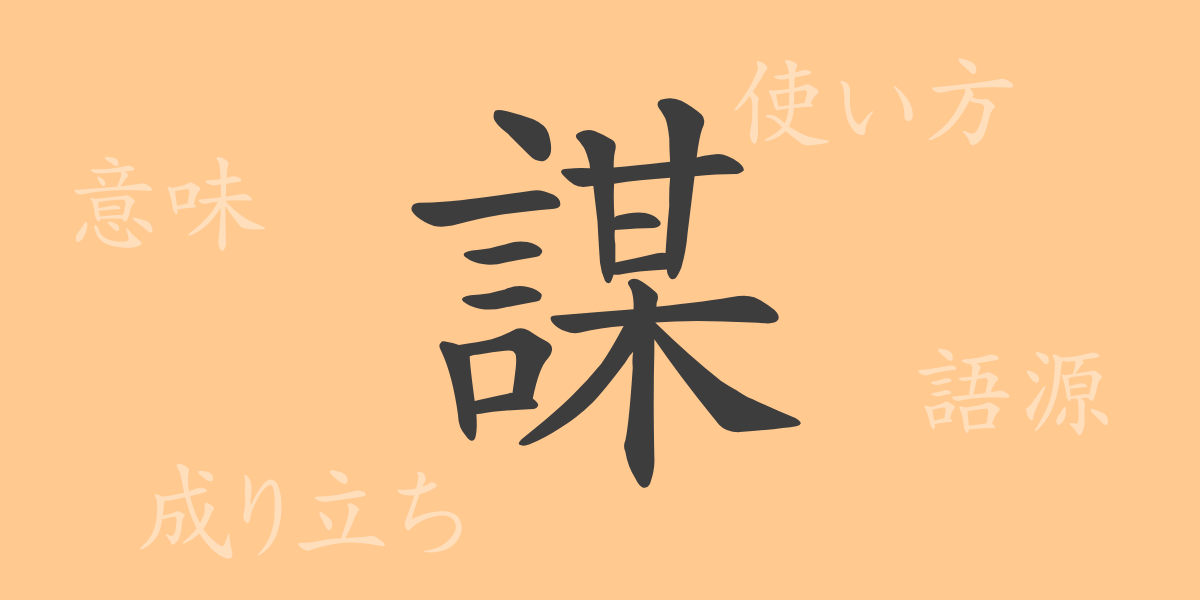In the Japanese language, there are numerous 漢字 characters, each with its own unique history and meaning. The 漢字 “謀” has been used since ancient times and is also classified as one of Japan’s commonly used 漢字. This article delves into the origins, meanings, usages, and even idioms and proverbs associated with “謀.”
Origins of 謀ぼう (Etymology)
The 漢字 “謀” originates from ancient China. It was formed by combining the radical for “words” (言) with the character indicating “deception” (某). This combination gave rise to meanings such as “to plan” and “to devise strategies,” eventually referring to matters related to strategy and scheming.
Meanings and Usage of 謀ぼう
The primary meanings of “謀” include “to plan,” “to devise strategies,” and “to consult.” Although this 漢字 is often used in a negative context, it can also be employed positively. For instance, when a company expresses that it is “謀る” a new business plan, it conveys a forward-thinking connotation.
Readings, Stroke Count, and Radical of 謀ぼう
“謀” has multiple readings in Japanese.
- Readings: The 音読み (Chinese reading) is “ボウ,” and the 訓読み (Japanese reading) is “はかる” and “たばかる.”
- Stroke count: It has a total of 16 strokes.
- Radical: The radical is “言” (words).
Idioms, Proverbs, and Phrases Using 謀ぼう and Their Meanings
There are numerous idioms, proverbs, and phrases that include “謀,” each with its own unique meaning. For example, “謀反” refers to betrayal or rebellion and is often used in political contexts. “謀略” means strategy or scheme, and “謀る” signifies plotting something. These terms are used in everyday conversations and business scenarios.
Summary of 謀ぼう
The 漢字 “謀” carries the connotation of devising strategies and is a multifaceted word used in various contexts in Japanese. From strategic planning in business to idioms in daily conversation, its applications are broad, showcasing the richness of the Japanese language. We hope this article provides a deep understanding of “謀.”

























